Sharing some useful tips for the kitchen. :)
Cooking Tips:
- Try using carrots instead of sugar to sweeten your sauces.
- When sauteing with garlic or ginger, always brown them in oil after salt has been added but before any other ingredients. This will bring out the full flavor of ingredients.
- If a dish is too salty, slices of raw pared potato added to it while cooking will absorb excess saltiness. When cooking adobo and it turns out too sour, add sugar.
- To save burned food, immediately set burned pot containing the food in a larger container with cold water. Do not stir the food. Leave uncovered until cooled. Then pour contents into another pan. Do not scrape the bottom. Scorched food will adhere to the bottom and can be discarded thus eliminating the burnt taste from the rest of the food.
- When boiling rice and the water has completely evaporated but the rice is not yet cooked, soak a double layer of paper towel with water and put it on top of the rice. Cover pot and keep on low heat. This way the rice will cook evenly and the bottom will not be soggy or burned.
- Never pierce meats when browning them. The juices will escape and the meats become tough and dry. Use tongs, not fork, for turning them over.
- When broiling steaks or chops, put one cup water in the bottom of the broiler pan to prevent grease burning on the pan, eliminate smoke, make pan easy to wash and catch the drippings for the gravy.
- To tenderize meat, the meat can be soaked in a strong tea solution. The tannin in tea is a natural meat tenderizer.
- If you want to fully enjoy garlic’s health-enhancing antioxidants andmore of its flavor, the key is to finelychop the cloves. The more surface area that is exposed, the more the oils are released.
- When preparing sauces, add flour to melted butter off the heat for a smoother mixture. When adding any liquid to a sauce base, stir it in off the heat also. Add hot sauce to cold sauce two tbsp. at a time so the cold sauce warms up gradually and does not curdle.
- Always tear greens with your fingers into bite-size pieces, do not cut them because it makes greens to go limp and edges to turn dark. You can use a knife if you are going to eat the salad right away without leftovers. If you are going to use a knife, then you may want to get a plastic serrated salad knife.
- Steam potatoes whenever possible to conserve nutrients. If you have to boil them, add 1 tsp. vinegar or lemon juice to the water to make potatoes snowy white.
- Monitor the heat when frying lumpia shanghai. Too low makes the lumpia too oily and soggy; too high will burn the wrapper before the meat is cooked.
- For caldereta, instead of beef, goat's meat (kambing) can be used. If goat's meat is used,marinate the meat in vinegar, garlic, salt and pepper for at least 15minutes. For a special kaldereta, do not use water or beef stock. Use an equivalentweight of onions to the beef (1 kg of onions : 1 kg of beef). Theonions will serve as water to the dish.
- If you feel like you’ve added too much liquid after adding the noodles for your pancit canton, raise the heat to high. That way, the stock/liquid will evaporate faster and your noodles will not get soggy. Otherwise, add more stock or water as necessary. Also, always check the seasoning before and after adding the noodles.
- Soak wooden skewers in water for 30 minutes before using them so they won't burn during cooking.
- Taste the (wet) marinade first before soaking meat into it. It kinda gives you the idea what it'll taste like once it's cooked.
- In deep frying, avoid crowding food that is fried. The food must be surrounded by bubbling oil, and you must keep the temperature from falling too much. If you add too much food to a small amount of oil, the temperature will plummet, and the food will wind up greasy and soggy.







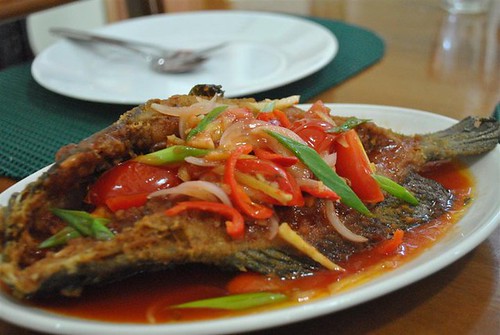
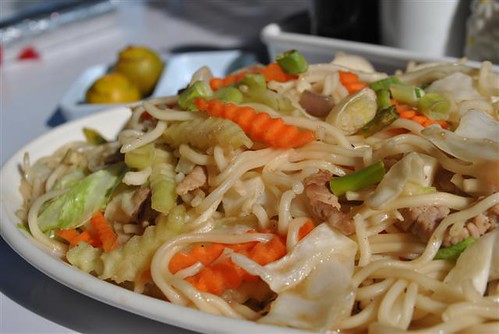

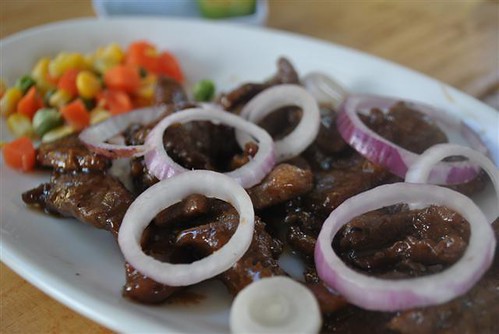
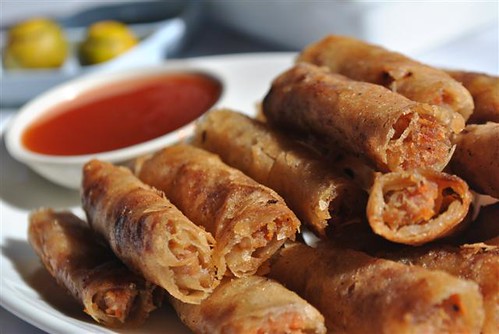
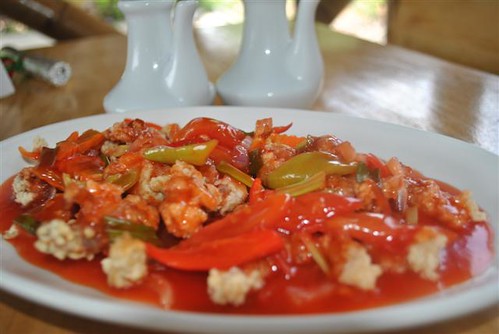
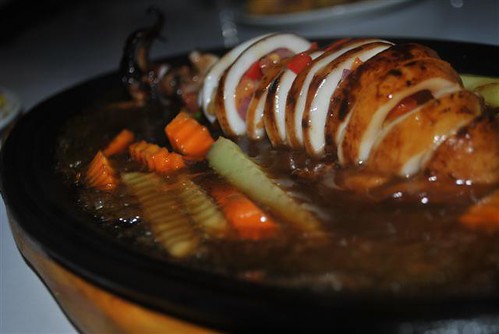








No comments:
Post a Comment